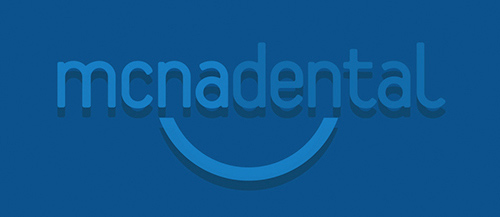

Requirements for Sedation Services
The Texas Health and Human Services Commission (HHSC) implemented new pediatric sedation policies on July 1, 2017, and as a result, the requirements for Medicaid dental providers rendering sedation services have changed. All Medicaid dental records must contain documentation to support that the sedation provided was medically necessary and that the sedation services were conducted within the standard of care and comply with the Texas Administrative Code (TAC)/Texas State Board of Dental Examiners (TSBDE) requirements specified in 22 TAC § 108.7 (2014), 22 TAC § 108.8 (2014) and 22 TAC § 110.4 (2011). Specifically, the dentist administering the sedation must remain in the operatory room to monitor the patient until the patient meets the criteria for discharge to the recovery area at which time the dentist may delegate monitoring to a qualified dental auxiliary. We want to help you understand the new HHSC sedation policies to ensure that your office is compliant with all of the documentation, equipment, and licensure requirements for this important service. Please read on carefully for further details.
MCNA Updates
Requirements for Sedation Services
The Texas Health and Human Services Commission (HHSC) implemented new pediatric sedation policies on July 1, 2017, and as a result, the requirements for Medicaid dental providers rendering sedation services have changed. All Medicaid dental records must contain documentation to support that the sedation provided was medically necessary and that the sedation services were conducted within the standard of care and comply with the Texas Administrative Code (TAC)/Texas State Board of Dental Examiners (TSBDE) requirements specified in 22 TAC § 108.7 (2014), 22 TAC § 108.8 (2014) and 22 TAC § 110.4 (2011). Specifically, the dentist administering the sedation must remain in the operatory room to monitor the patient until the patient meets the criteria for discharge to the recovery area at which time the dentist may delegate monitoring to a qualified dental auxiliary. We want to help you understand the new HHSC sedation policies to ensure that your office is compliant with all of the documentation, equipment, and licensure requirements for this important service. Please read on carefully for further details. Documentation in the Dental RecordAll dentists, no matter who the payer is, are required by TSBDE to maintain patient dental records that meet the requirements in 22 TAC § 108.8 (2014) which states that records must include documentation of the following:
Additionally, dental records must include documentation of the following when services are rendered:
The TSBDE also requires that dental records shall be made available for inspection and reproduction on demand by the officers, agents, or employees of TSBDE. The patient's privilege against disclosure does not apply to the TBSDE in a disciplinary investigation or proceeding under the Dental Practice Act. Copies of dental records submitted to the TBSDE on demand of its officers, agents, or employees shall be legible and all copies of dental x-rays shall be of diagnostic quality. Non-diagnostic quality copies of dental x-rays and illegible copies of patient records submitted to the TBSDE shall not fulfill the requirements of this section. Similarly, the MCNA provider contract explicitly states that dental records must be made available for inspection and reproduction on demand by the officers, agents, or employees of MCNA or HHSC. Equipment for Sedation ServicesThe standard of care related to sedation also includes possessing the necessary equipment required by 22 TAC § 110.4 (2011). Specifically, each time Level IV deep sedation/general anesthesia is administered, a positive-pressure oxygen delivery system that is suited to the patient must be immediately available in the treatment location in order to treat a patient for oxygen loss or cardiac arrest. The failure to have such equipment during sedation increases the risk of patient harm and falls short of meeting the standard of care for providing such services. For children 12 years of age and younger, 22 TAC § 110.4 (2011) requires that the dentist should observe the American Academy of Pediatrics/American Academy of Pediatric Dentists (AAPD) Guidelines for Monitoring and Management of Pediatric Patients During and After Sedation for Diagnostic and Therapeutic Procedures. If you are a sedation provider, we recommend that you strictly follow the manufacturer's recommended testing and maintenance schedule for your sedation equipment and maintain records documenting the testing and maintenance performed. Please contact the equipment manufacturer for full details if you are unsure about testing and maintenance procedures and schedules. Level IV Deep Sedation for Patients 6 Years or YoungerThe following is an overview of the section of the HHSC sedation policy that applies to dental services provided under general anesthesia to patients who are six (6) years of age or younger. This policy applies whether or not the general anesthesia services (dental - D9223 and medical - CPT 00170) are billed to Texas Medicaid or any other payer. It also applies whether the Level IV deep sedation is administered by a dental or medical anesthesiologist. These are the steps in the new process:
Prior Authorization of Level IV Deep Sedation ServicesAs a part of the HHSC's sedation policies implemented on July 1, 2017, Texas Medicaid requires a prior authorization request to be submitted for, and prior to, each Level IV deep sedation/general anesthesia procedure. Providers should use MCNA's Dental Therapeutic Treatment with Anesthesia Prior Authorization Request Form to complete their request. A patient-specific Criteria for Dental Therapy Under General Anesthesia Form must also be completed and submitted to MCNA along with each prior authorization request for Level IV deep sedation (D9223 or CPT 00170). The completed 22-point form must also be maintained in the patient's dental record. While this form applies a point system where the dental provider assesses the age, behavior of the patient, the extent of the dental procedures, and any other documented conditions used to determine the qualification of the patient for Level IV deep sedation/general anesthesia due to medically necessity, it does not constitute a minimum of criteria for administering general anesthesia nor is it a substitute for prior authorization. In addition to the two forms described above, you must ensure the submission of the following information to complete a prior authorization request for Level IV deep sedation:
Please call our Provider Hotline at 1-855-776-6262 (7 a.m. to 7 p.m. Central Time, Monday through Friday) if you have any questions. We welcome your feedback on this process and appreciate your time and participation in the implementation of this important policy. |
|



